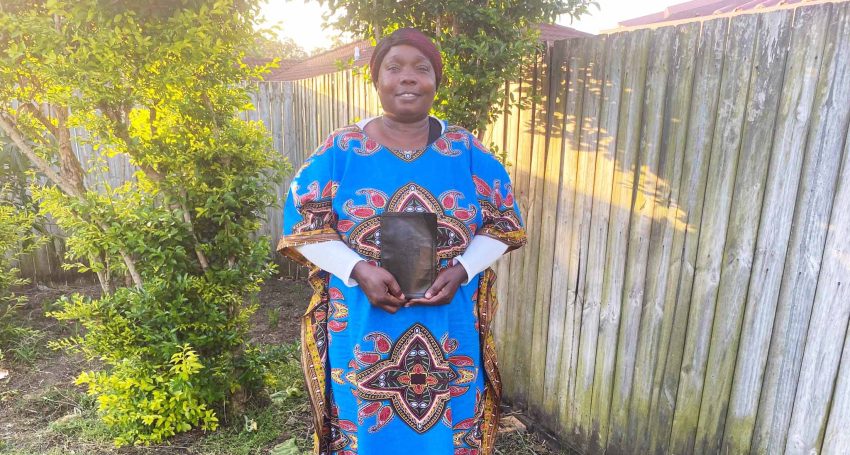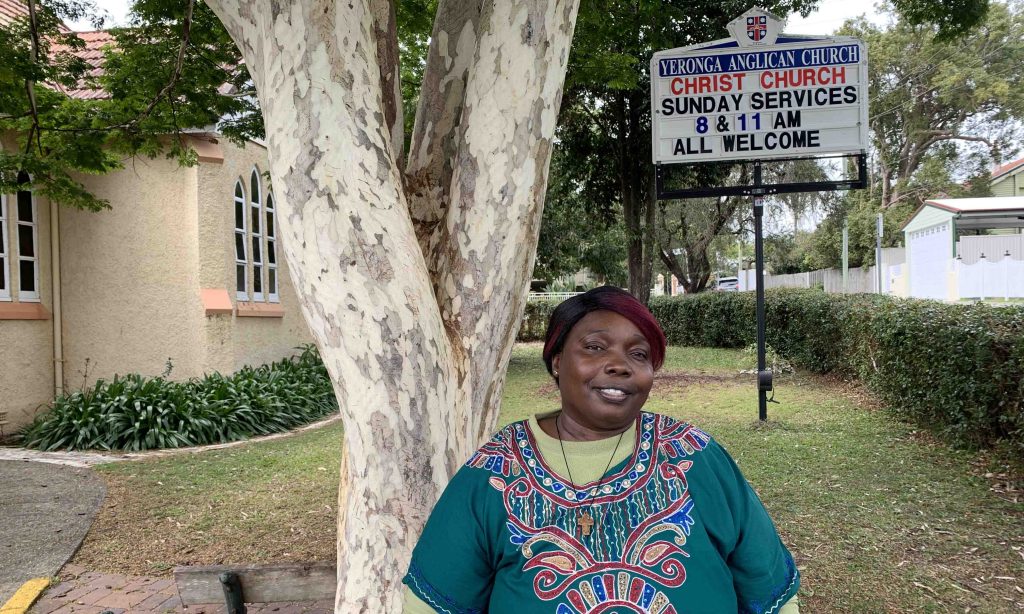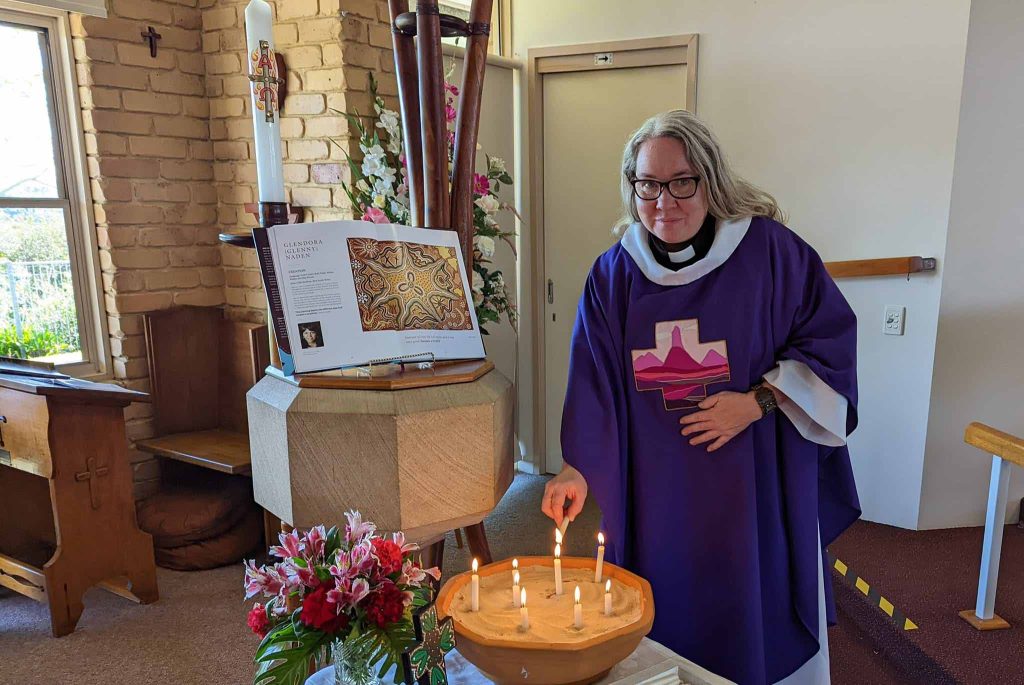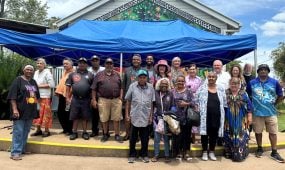What is your favourite Lukan passage and why?
Reflections
Four priests from across our Diocese tell us about their favourite passage from the Gospel of Luke, including The Rev’d Rebecca, The Rev’d Adam Lowe, The Rev’d Deb Bird and The Rev’d Michael Stalley

Four priests from across our Diocese tell us about their favourite passage from the Gospel of Luke, which is the primary Gospel read on Sundays during Year C of the Lectionary cycle.

The Rev’d Rebecca is Priest-in-Charge of The Parish of Yeronga (August 2022)
The Rev’d Rebecca – Priest-in-Charge, Christ Church, Yeronga
Luke 16.1-13 is one of my favourite verses because it talks about honesty and faithfulness.
Clearly in this passage, honesty is wrapped up with faithfulness. Honesty and faithfulness are essential values that the servant of God should possess in the following three ways.
Firstly, in our time. One of the values that the servant of God must have is to be honest with time, dividing her or his time wisely – this is wrapped up with faithfulness. There’s time to laugh, time to rest, time for devotion, time for work, time to be build, time to plant.
Advertisement
Our heart beats show us that our life is in seconds and minutes. Time is divided into seconds, minutes, days, weeks, months, years and so on. And our success or failure is dependent on how we spent our time living honestly and faithfully.
Secondly, money. We need to be honest and faithful in how we spend our money. We will need to account for how we stewarded our money. We need to be generous with our income, sharing what we have with people who are struggling and to further God’s mission.
Thirdly, being honest in the small things, especially when nobody is watching. Luke said this very well, when he wrote: “Whoever is faithful in a very little is faithful also in much; and whoever is dishonest in a very little is dishonest also in much (16.10).” Being honest and faithful in both the small and big things are important as servants of God.
I love this passage because it keeps me in check and balance, helping me to be honest and faithful with myself and others around me.

“One of my favourite parts of Luke is the ascension of Jesus…The ascension tells us at least three important things about Jesus” (The Rev’d Adam Lowe from St Bart’s, Toowoomba in 2022)
The Rev’d Adam Lowe – Senior Minister, St Bart’s, Toowoomba
I have great affection for Luke’s Gospel, not least because it’s part of a two-volume set: Luke-Acts. Uniquely, as Luke tells of Jesus’ life, death, and resurrection, he thought it proper to evidence how Jesus’ mission continues, in the power of the Holy Spirit, through the life of the Church. For this reason, one of my favourite parts of Luke is the ascension of Jesus (Luke 24.50-53). The ascension tells us at least three important things about Jesus.
Advertisement
First, Jesus is alive. If there was no ascension, it would mean that Jesus either died again or – unbeknown to anyone – remains alive on earth. The ascension demonstrates the glorious news that Jesus is the living king.
Second, Jesus is human. Perhaps one of the more neglected aspects of Christology (the study of nature and work of Jesus) is that Jesus’ ascension was not a “reverse-incarnation” – in which he jettisoned his body for some “higher spiritual form” – but Jesus remains embodied. This means that, not only do we have one who is able to sympathise with us, but it also points to the redeemed physical nature of new creation that awaits all who put their trust in Jesus.
Third, Jesus is worthy. Having witnessed the resurrected Christ ascend, the disciples worship him even though gone from their sight. The ascension shows us that, not only was Jesus victorious over sin and death, but the model for those who follow him today is to worship him with our entire lives until we see him face to face.

“As far as favourite things go, it’s hard to look past the Magnificat” (The Rev’d Deb Bird from The Parish of Maleny in October 2022)
The Rev’d Deb Bird – Parish Priest, The Parish of Maleny
As far as favourite things go, it’s hard to look past the Magnificat (1.46-55). It’s unique for all kinds of reasons, but what really tugs at my heart is the sheer exuberance of young Mary, full throated in song.
There is nothing small about her exclamation – this is a young heart brimming with joy and bursting with possibility, imagination, confidence and hope. A nice dialogue between cousins can’t do justice to that feeling. Only music will.
Looking at the four songs connected to the birth of Jesus – Mary’s Magnificat, Zachariah’s Benedictus 1.67-79, the Angels’ Gloria 2.14 and Simeon’s Nunc dimittis 2.29-32 – I think about the tradition of the musical, a genre in which the condition of the heart drives the plot and is so emphasised that it becomes completely natural to be carried away in song, dance and drama.
It suggests to me that this is how we are to hear the story of Jesus that follows – as a person so caught up in love and hope for the whole community of God that it became the great story of his life. And to paraphrase the poet Mary Oliver, this is why we keep telling his story – that our hearts may likewise be broken open to each other, that they may “never close again to the rest of the world.”

“‘But on the first day of the week’, tells us that what we are about to hear will bring us a new perspective on past events” (The Rev’d Michael Stalley from St Bartholomew’s, Mt Gravatt, pictured with parishioner Pradeep and German Shepherd Nala at the Blessing of the Pets during 2022’s Season of Creation)
The Rev’d Michael Stalley – Rector, St Bartholomew’s, Mt Gravatt
“But on the first day of the week…” (Luke 24.1a).
This passage is so short, and yet it says so much. As someone who lives on this side of the resurrection, these words are full of anticipation for me each time I read them. As we read Luke, we have witnessed the death of Jesus and his burial. All his followers’ expectations seem to have been shattered. The powers that opposed Jesus seemed to have had the last word. The voice of God’s love has fallen silent. It is almost as if the story might stop here.
And then this simple sentence that starts with “But” reminds us there is more. “But on the first day of the week,” tells us that what we are about to hear will bring us a new perspective on past events. It reminds us that the voice of love has not been silenced, death has not had the last word, and the story continues. The very sense of anticipation these few words bring me makes them my favourite.
These words remind me that if we are to grasp that which follows in this story about Jesus, we need to remember the first time God started counting the days of the week. It is the story of creation in Genesis that we will need to understand the story of the new creation through Jesus Christ on this first day of the week.
It is hard not to get a little excited about that!
Editor’s note: If you would like to share about your favourite scripture in anglican focus, please contact the Editor, Michelle McDonald, via focus@anglicanchurchsq.org.au for more information.







